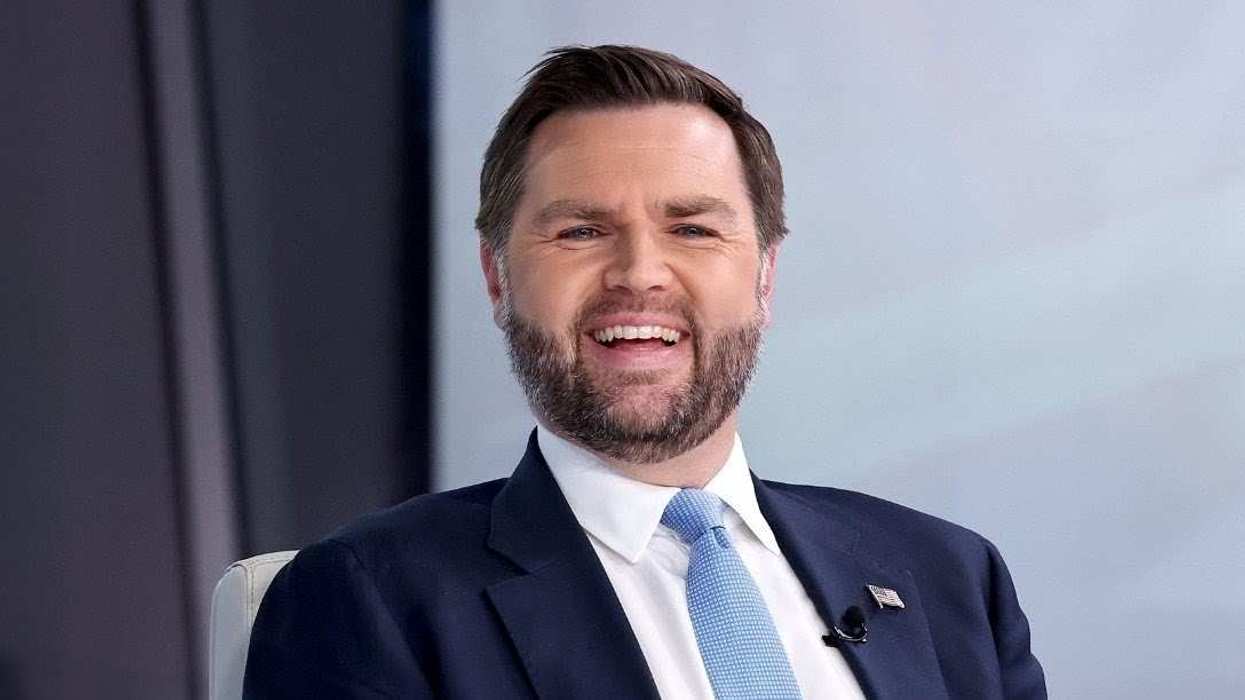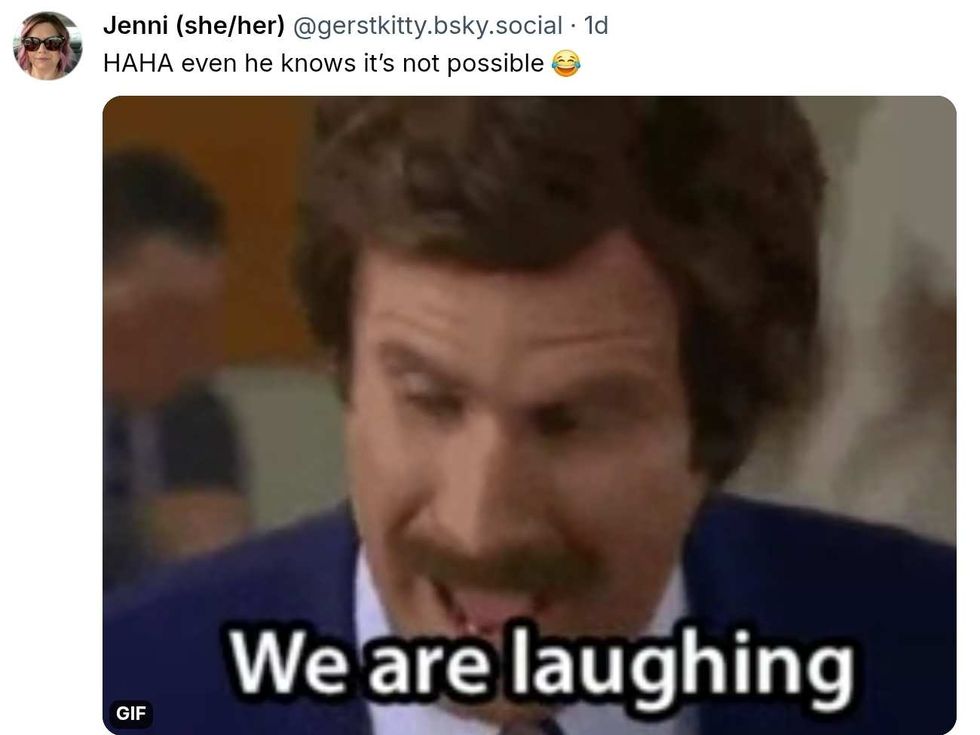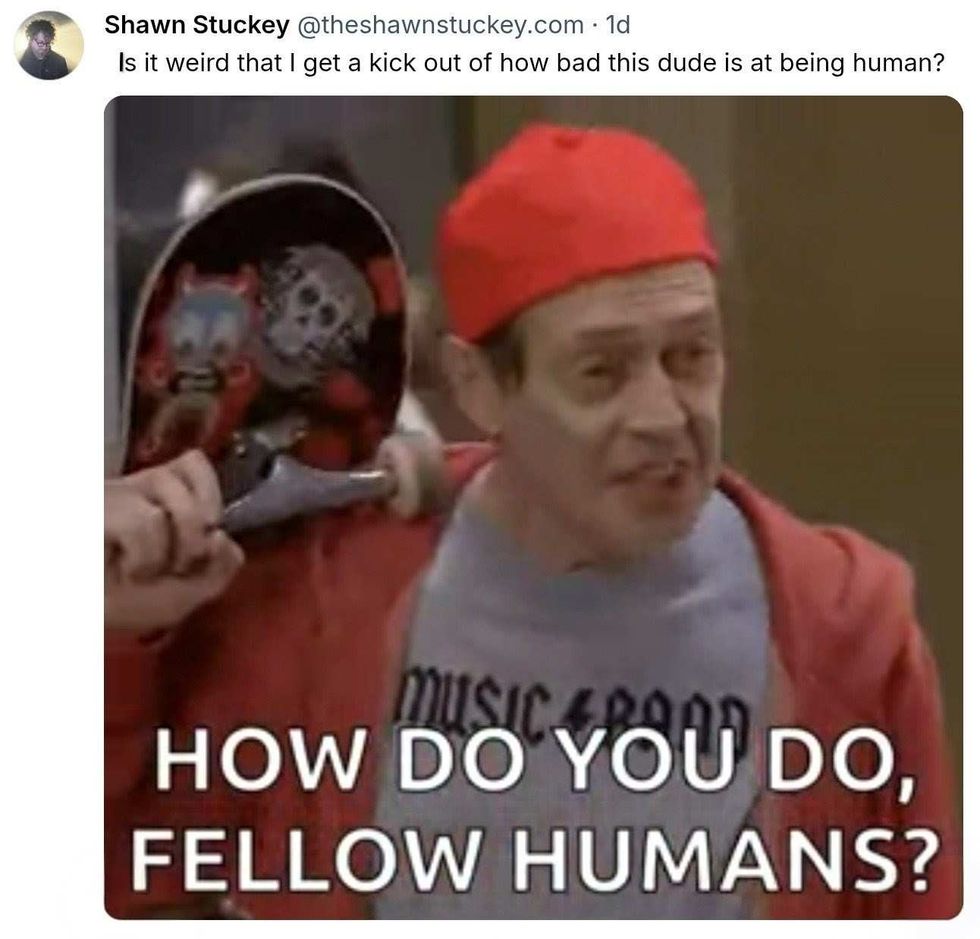President Donald Trump gave a wide-ranging interview to The New York Times yesterday that sparked considerable conversation for his claims about the response from Congressional Democrats to his proposed border wall along the U.S.-Mexico border. But his other claims, which covered everything from trade to the military to border security, were either false or misleading enough that The Times commissioned a fact check almost as long as the interview itself.
We'll tackle them one by one.
ON TARIFFS
“We have 25 percent now on $50 billion," Trump said. "And by the way, Peter [Baker], that’s a lot of money pouring into our Treasury, you know. We never made 5 cents with China. We’re getting right now 25 percent on $50 billion.”
The Times notes that this claim is false.
Tariffs imposed on imports of foreign goods do not mean another country is paying the bill," writes Times reporter Linda Qiu. "The costs are largely passed onto American companies and consumers."
Nor is it true that the Treasury Department "had never collected any revenue from tariffs on Chinese products before President Trump. President George Washington signed the Tariff Act of 1789, when trade between China and the United States was already established."
Qiu notes that tariffs "generated almost a third of all federal revenue in 1915. In the 2016 fiscal year, the Treasury Department collected $35 billion in tariff revenue."
ON THE VETERAN'S CHOICE PROGRAM
“Veterans Choice, V.A. Choice. They’ve been trying — as long as you’ve been writing, they’ve been trying to get V.A. Choice," Trump said.
The Times notes that this claim is misleading:
Mr. Trump is confusing an existing program for veterans’ health care with recently enacted overhauls.The Veterans Choice Program was created in 2014 after the scandal of hidden waiting lists at Department of Veterans Affairs hospitals. Under the program, veterans who do not live within 40 miles of a department hospital or face wait times of more than 30 days for care could seek private health care funded by the government.
In June, Mr. Trump signed a law that overhauled and consolidatedVeterans Choice and other existing programs into a single Veterans Community Care Program. Under new rules unveiled this week by the administration, veterans who must drive for at least 30 minutes to one of the department’s facilities will be able to opt for private care, a less stringent requirement for many veterans.
ON OBAMACARE
Trump said: “If the Obamacare were repealed and replaced — except for John McCain, it would have been, you know, he campaigned against it for six years, and then when he had the chance, he went thumbs down at 2 o’clock in the morning.”
The Times notes that this claim is exaggerated.
The publication points out that the late Senator John McCain's vote would not have guaranteed a full repeal. The version of the bill that was up for votes at the time was a "skinny repeal" that "would have repealed the individual and employer mandates, but would have left Medicaid expansion and the health care law’s insurance regulations intact (though leaving millions more Americans uninsured)." Moreover, the House would have still needed to pass it and it would have been the subject of negotiations between lawmakers.
ON THE OPIOID CRISIS
Trump said: "You look at the heroin and a lot of the other drugs, they come from — 90 percent, more than 90 percent — from right across the southern border. And unlike what the Democrats say, they don’t, you don’t bring trucks of drugs through the checkpoints. You bring trucks of drugs by making a right 20 miles, and a left into the country.”
The Times notes that this claim is false.
While the president is correct that the majority of heroin comes into the country through the southern border, most of it "comes through ports of entry, according to the Drug Enforcement Administration." The Times points out that "About 90 percent of heroin was seized at ports of entry from Oct. 1, 2017, to Aug. 30, 2018, compared with about 10 percent in the areas between ports of entry."
ON THE APPROVAL RATINGS OF THE REPUBLICAN PARTY
Trump said: “But look, we have among the highest polls — and actually the highest polls — but among the highest polls ever in the history of the Republican Party.”
The Times notes that this claim is false.
According to Gallup, Trump enjoys "an 88 percent approval rating among Republicans at Day 737 of his presidency." However, Presidents George W. Bush, George H.W. Bush, and Eisenhower had higher approval ratings at roughly the same points in their respective presidencies.
ON JOB CREATION
Trump said: “You know, we’ve created over 500,000 manufacturing jobs, and the previous administration lost 200,000 over eight years and said that was the magic wand.”
The Times notes that this claim is misleading:
The numbers omit important context. President Barack Obama presided over a net loss of 192,000 manufacturing jobs from January 2009 to January 2017. Under Mr. Trump, the economy has added 473,000 manufacturing jobs so far. But when he took office, Mr. Obama inherited a deep, job-killing recession, while Mr. Trump was sworn in during an economic recovery that began under his predecessor.
Trump has repeatedly attempted to obfuscate the Obama administration's successes and the economy has been to shown to have grown faster under his predecessor.
ON THE MILITARY
Trump said: “I got him more money than the military has ever seen before.”
The Times notes that this claim is false.
In August, Trump signed the John S. McCain National Defense Authorization Act for fiscal year 2019, which "provided $716 billion for the Pentagon’s basic operations and war spending, as well as for the Energy Department’s national security programs." Obama, his predecessor, signed a $726 billion National Defense Authorization Act for the 2011 fiscal year.
ON SELECTING A SECRETARY OF DEFENSE
Trump said: “You know it’s interesting, historically, you just never — you rarely put a military person in, which surprises me. When I first got here, I said, ‘What do you mean?’ That’s the natural of all naturals. Actually, you need special approvals to put them in, you know, etc. etc. Normally, a business person goes in — and I mean, you have one exception or two exceptions — but historically, a business person goes in to the secretary of defense.”
The Times notes that this claim is false.
The opposite is true. 19 of the 26 men who have held this position had military experience. The other seven were businessmen.
ON COLLUSION
Trump said: “I mean, the primary collusion was Hillary Clinton.”
The Times notes that this claim is false.
Trump has often suggested that Hillary Clinton is responsible for collusion because 2016 presidential campaign paid for opposition research that resulted in a dossier compiled by former British intelligence agent Christopher Steele.
The Steele dossier is one of the president’s favorite talking points.
Last year, the much-debated Nunes memo, which alleges abuses of covert surveillance powers by the FBI, incited a debate as to whether its contents would vindicate the president. Multiple members of Congress, including Representative Trey Gowdy (R-S.C.), himself a member of the House Permanent Select Committee on Intelligence, disagreed.
The Nunes memo has fueled suggestions from members of the far right that the “rumor” of the Trump administration’s collusion with Russian operatives first began to make waves after Hillary Clinton’s campaign commissioned the now infamous dossier––as part of its own collusion with the FBI. In fact, that suggestion mischaracterizes the dossier. Its existence is significantly more complicated than that.
Trump has often suggested that the dossier has not only been “disproven” but “paid for by Democrats.” Last year, Senator Dianne Feinstein (D-CA) released the unclassified transcript of the interview last August by Senate Judiciary Committee members with Glenn Simpson, a founder of the research firm Fusion GPS, which the Clinton campaign retained to do opposition research on Trump. Simpson’s testimony indicates that Steele was so disturbed by his discoveries that he chose to alert the FBI.
"Collusion, which is generally understood as secretive and often illicit collaboration, has no defined legal meaning," notes The Times. "Mr. Steele did use Russian sources to compile his dossier, and reported his findings to the F.B.I. But there is no evidence anyone from the Clinton campaign met with Russian officials and conspired to manipulate the American election."
ON CHINA
Trump said: “China was killing our country. They were taking out $500 billion dollars a year.”
The Times notes that this claim is misleading.
"The United States had a $336 billion trade deficit in goods and services with China in 2017, writes Linda Qiu, "and a trade deficit in goods alone of $376 billion."








 @chrissy64/Bluesky
@chrissy64/Bluesky @gerstkitty/Bluesky
@gerstkitty/Bluesky @katvanzan/Bluesky
@katvanzan/Bluesky @ghenguskahn/X
@ghenguskahn/X @theshawnstuckey.com/Bluesky
@theshawnstuckey.com/Bluesky
 @starlightwishes/Bluesky
@starlightwishes/Bluesky






 @margarete6888/YouTube
@margarete6888/YouTube @johngalt0096/YouTube
@johngalt0096/YouTube @BiteyTheWombat/YouTube
@BiteyTheWombat/YouTube @thenotoriousgryyn342/YouTube
@thenotoriousgryyn342/YouTube @meredithmorgan5959/YouTube
@meredithmorgan5959/YouTube @margaretgarls153/YouTube
@margaretgarls153/YouTube @valramos2003/YouTube
@valramos2003/YouTube @kokayinewsom9308/YouTube
@kokayinewsom9308/YouTube @Joe_Montfort/YouTube
@Joe_Montfort/YouTube
